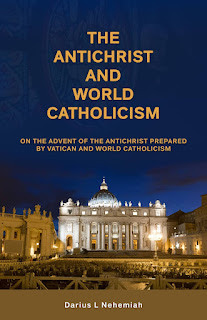Gog and Magog (known in Arabic as "Ya'juj wa Ma'juj") are significant figures in Islamic eschatology, derived from both the Quran and Hadith literature. Their narratives intersect with various themes of prophecy, judgment, and the end of times, and they hold a pivotal place in the apocalyptic visions described by the Prophet Muhammad. This article explores the Islamic understanding of Gog and Magog, their characteristics, their role in the end times, and the implications of their emergence according to Islamic tradition.
The Origins of Gog and Magog in Islamic Texts
The figures of Gog and Magog are mentioned in the Quran in Surah Al-Kahf (18:83-98) and Surah Al-Anbiya (21:96). In the context of these verses, they are depicted as a corrupting force unleashed upon the world. The Quran describes a historical account involving Dhul-Qarnayn, a great ruler who travels to the east and the west, encountering the people of Gog and Magog, who were causing chaos and corruption.
In the story, the people plead with Dhul-Qarnayn to help them against the mischief of Gog and Magog. He agrees to build a massive barrier using iron and molten copper, which effectively holds back these tribes. This barrier symbolizes both physical and moral restraint against their destructive nature. The narrative suggests that Gog and Magog will eventually break through this barrier, leading to significant chaos and tribulation.
Characteristics of Gog and Magog
Islamic tradition portrays Gog and Magog as monstrous beings. They are often described as a large and powerful population, characterized by their hostility and destructiveness. While the Quran provides limited detail about their physical form, Hadith literature elaborates further, indicating their role in the apocalyptic scenarios.
One common depiction found in various Hadith emphasizes their overwhelming numbers and the havoc they wreak. They are seen as entities that will emerge at the end of times, wreaking havoc on the earth, and are often associated with the final battles between good and evil.
The End Times and the Emergence of Gog and Magog
The emergence of Gog and Magog is a crucial part of Islamic eschatology. According to Hadith, their release will occur during the period leading up to the Day of Judgment. The Prophet Muhammad foretold that the signs of their appearance would be unmistakable, aligning with other apocalyptic events, including the return of Jesus (Isa) and the rise of the Dajjal (the Antichrist).
The Release of Gog and Magog: The Prophet Muhammad described a time when Gog and Magog would break through the barrier erected by Dhul-Qarnayn. This release is often interpreted as a metaphor for a period of immense moral decay and chaos in society, paralleling the rise of tyranny and corruption.
The Role of Jesus: In Islamic belief, Jesus will return to Earth during the end times to confront the forces of evil, including the Dajjal. It is believed that after defeating the Dajjal, Jesus will face Gog and Magog. The Hadith narrate that they will be so numerous that they will cover the land, consuming everything in their path.
The Aftermath: The battle against Gog and Magog will result in immense suffering and destruction. However, their destruction is foretold through divine intervention. According to the Hadith, Allah will send a pestilence that will wipe out Gog and Magog, thereby restoring order to the world.
Theological Implications of Gog and Magog
The narrative of Gog and Magog in Islamic theology is multifaceted, carrying various implications for Muslims:
Moral Responsibility: The stories of Gog and Magog serve as a reminder of the consequences of moral decay and societal corruption. They highlight the importance of maintaining righteousness and justice in society, emphasizing that when these virtues decline, chaos can ensue.
Hope and Divine Justice: While the emergence of Gog and Magog represents a period of great tribulation, the eventual defeat of these forces underscores the belief in divine justice. The return of Jesus and the intervention of Allah to eliminate Gog and Magog signify that evil will not prevail and that justice will ultimately be restored.
Awareness of the Signs of the End Times: The accounts of Gog and Magog encourage Muslims to be vigilant and aware of the signs leading to the Day of Judgment. The teachings of the Prophet Muhammad on the end times serve as a guide for believers, urging them to prepare spiritually and ethically for the challenges ahead.
Cultural Interpretations of Gog and Magog
Throughout history, Gog and Magog have been interpreted in various ways across cultures and regions. In Islamic art, they are sometimes depicted symbolically, representing the chaos and moral decline associated with their emergence. Furthermore, their legend has found parallels in other religious traditions, such as Christianity and Judaism, where they are also seen as apocalyptic figures.
In modern times, some scholars and theorists have drawn connections between Gog and Magog and contemporary global conflicts or socio-political issues. These interpretations can be contentious, often reflecting the anxieties of the times and the desire to find meaning in global events through the lens of religious prophecy.
Conclusion
Gog and Magog hold a prominent place in Islamic eschatology, serving as a powerful symbol of chaos and destruction. The narratives surrounding their emergence are rich with theological implications, reminding believers of the importance of moral responsibility, the certainty of divine justice, and the need for vigilance in the face of societal decay. As the world continues to grapple with various challenges, the lessons drawn from the stories of Gog and Magog remain relevant, urging individuals to reflect on their actions and their impact on the broader society.
Ultimately, the tales of Gog and Magog, deeply rooted in Islamic tradition, invite believers to engage with their faith actively, remain steadfast in righteousness, and anticipate the divine resolution that awaits at the culmination of time.



